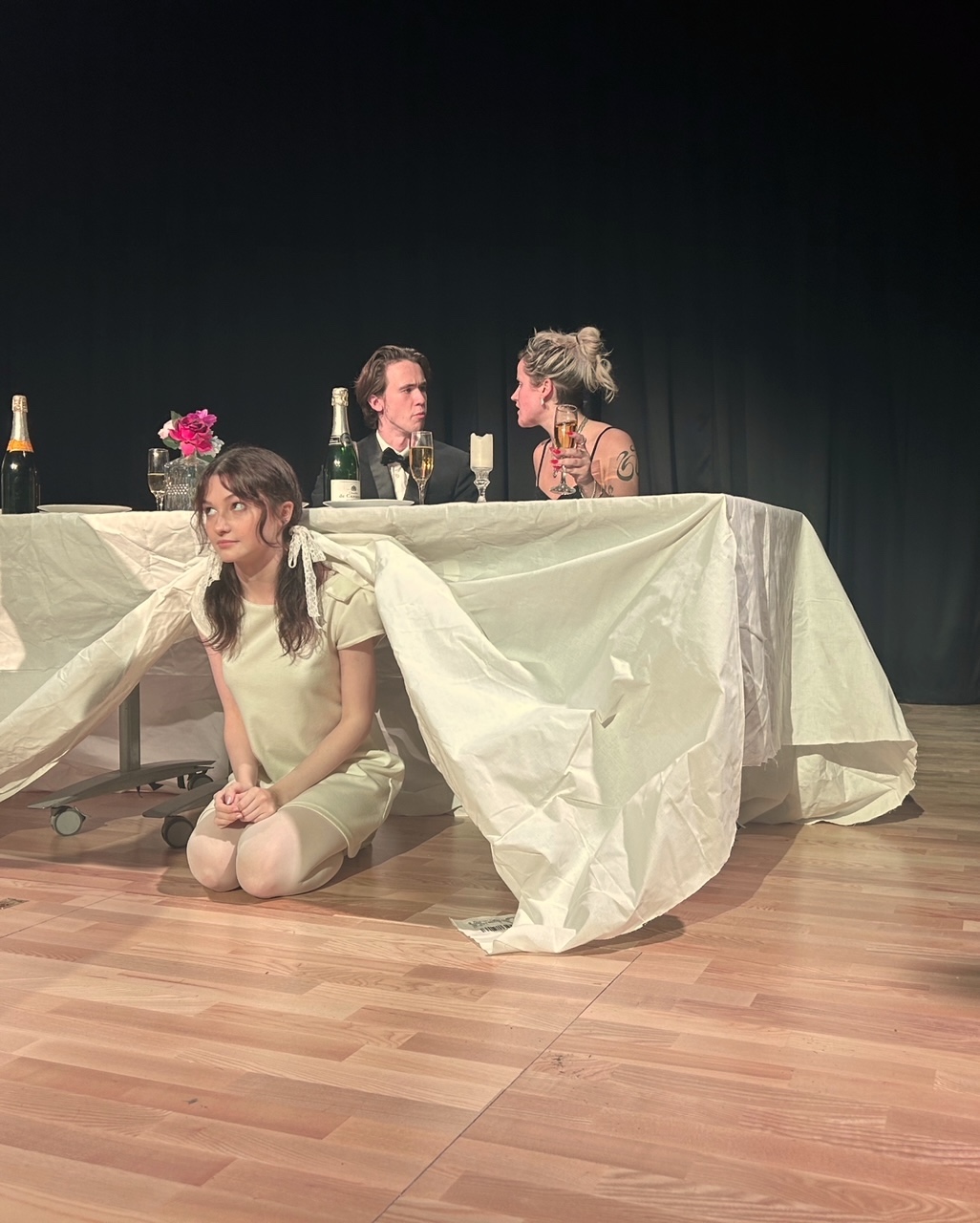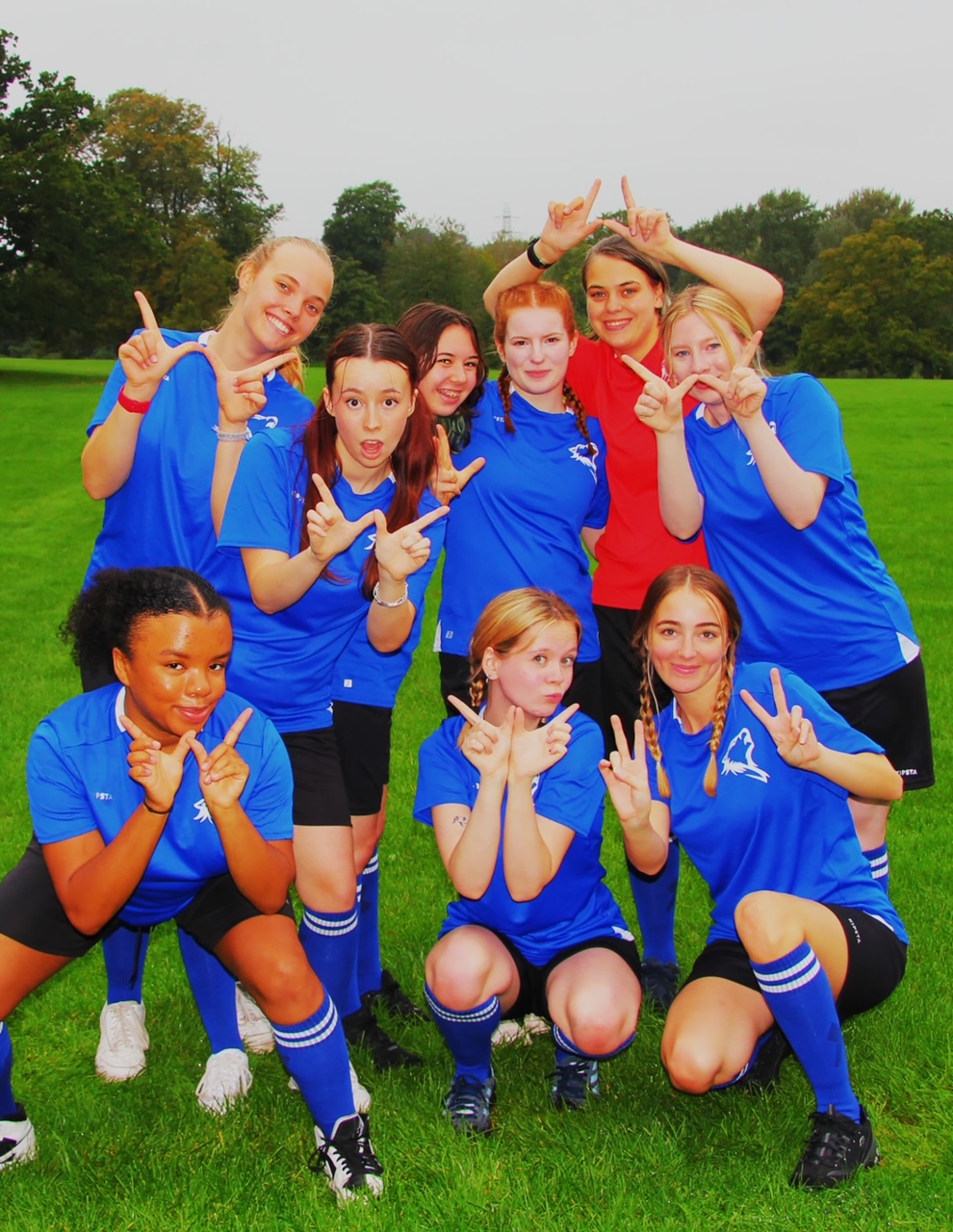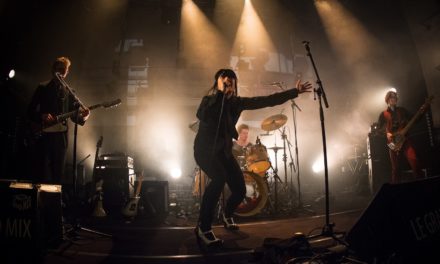I am a bit distracted currently and away from home, so there has to be a good reason to get me back to the Norwich performing arts scene. Well. Two good reasons today, two productions from the always exciting UEA Drama Studio students.
I saw both plays today – Festen, written by David Eldridge and The Wolves by Sarah DeLappe. Both were superbly performed and produced, each an engaging drama. The UEA students and their mentors always avoid the easy, and the directors of these two plays, Sophie Vaughan and Dr Ioana Szeman, have doubled their task by having two complete casts for each play. I assume that this is to ensure that every student has a role but it does mean that I can only do justice to half of the casts in this endeavour. The two plays are very different but share an exploration of the transition from child to adult life. But that’s about all they share.
Festen, which translates as ‘Celebration’, is a script based on the Thomas Vinterberg directed film of the same name. It was an early product of the Dogme 95 movement which saw directors spurn the technology and high budgets of mainstream cinema in favour of a raw and pared back style of production. Raw certainly suits the narrative of Festen, one of the most brutal bits of theatre that I have seen.
A hugely dysfunctional family return to the hotel run by their rich father Henry (Isaac Franklin) to celebrate his 60th birthday. From the very start there is violence and disturbing behaviour, as oldest son Christian (David Murray) a Parisian restaurateur encounters his boorish brother Michael (Fletcher Boyes), who inhabits the bars of London. Although created in the 1990s Festen has the feel of a pre-HIV era tale where casual sex is commonplace, with each of the sons feeling entitled to have their way with the waitresses in the hotel. They are joined by their sister Helene (Daisy Miles) and we soon learn that they are grieving the recent suicide of Christian’s twin Linda, found dead in a bath. As the extended family and friends sit for a boozy dinner Christian toasts his father then tells a lurid story of the sexual abuse that he and his twin sister received at the hands of their father. This sets the tone for further shocks and revelations as the play progresses.
Director Sophie Vaughan has shaped this production with two separate casts. I saw Company 2 and both the leads and the supporting cast members gave powerful and well characterised performances. The roles of the family members are hugely demanding, physically and emotionally, and this cast managed to make these monstrous characters all too believable. There are many little sub plots exploring the various relationships between family members and others in the hotel. Molly Dew plays Jess, a truly disturbing young child with wild behaviour who morphs into the ghost of the dead Linda.
With a script featuring so many extreme characters and events it could easily slip into ridiculous pastiche, but this cast managed to make every role into a a believable human with whom we might empathise, even the tyrannical father Henry. We keep expecting some kind of redemption, only to be greeted with more trauma and violence. A belter of a play, beautifully performed.
The Wolves is all about American teenage girls and team sport. The nine girls in every scene of this one act play are known only by their soccer player numbers. In almost all scenes we see them stretching and practising their ball skills, but we never see them on the pitch or away from the sports field. We quickly learn of their complex inter-relationships, expressed in both subtle and blunt ways. One girl is cold shouldered from the start, the home schooled #46 (an intriguing performance by Rachel McCrum) who seems to have little experience but turns out to be a gifted and capable player. Keeper #00 (Daisi Parker) suffers crippling anxiety, forever running off to throw up before a tense game. #7 (Maisie Tiedeman) is feisty, political and rebellious, while conspiring with her friend #14 (Gracie Barlow) to arrange a weekend away with a couple of lads.
Over the weeks depicted there are many upsets until a real tragedy strikes, which seems to be the end for team – will their collective spirit survive?
This play has an engaging and distinctive style and a skilfully scripted dialogue carries the narrative, sometimes almost too subtly for audience members who may not have daily interaction with teenagers and their rapidfire linguistics.
Teenage emotions are a powerful thing, and this play manages that rare balance of showing this very clearly without turning into a shrieking chaos that will be familiar to any parent who has enjoyed hosting a teenager’s party. This cast (I saw Company 1) quickly developed distinctive characters in a fast moving dialogue that veered from Pol Pot’s Cambodia to the joys of living in a yurt.
Although the play has some really dark moments it is uplifting, showing that team sports can be a useful ladder to social maturity for young people treading through the minefield of transition from child to adult.
Taken together the two plays are branded as Crying Wolf, and there are some rather tenuous parallels between them but each stands alone as an enjoyable drama to watch, and a showcase for the remarkable achievement of the UEA Drama School students and their mentors.
© Julian Swainson
Norwich Eye
9th December 2023






Recent Comments